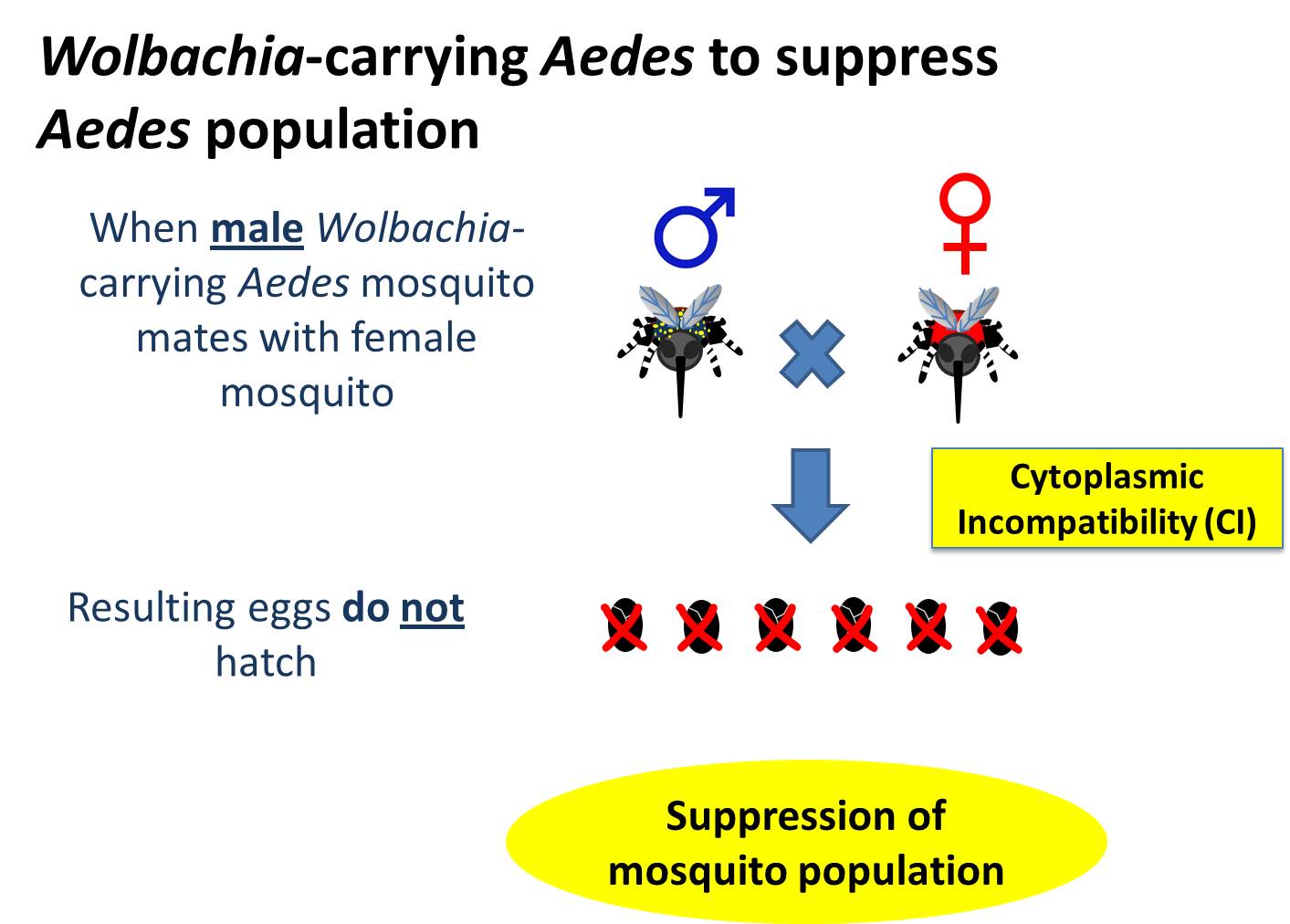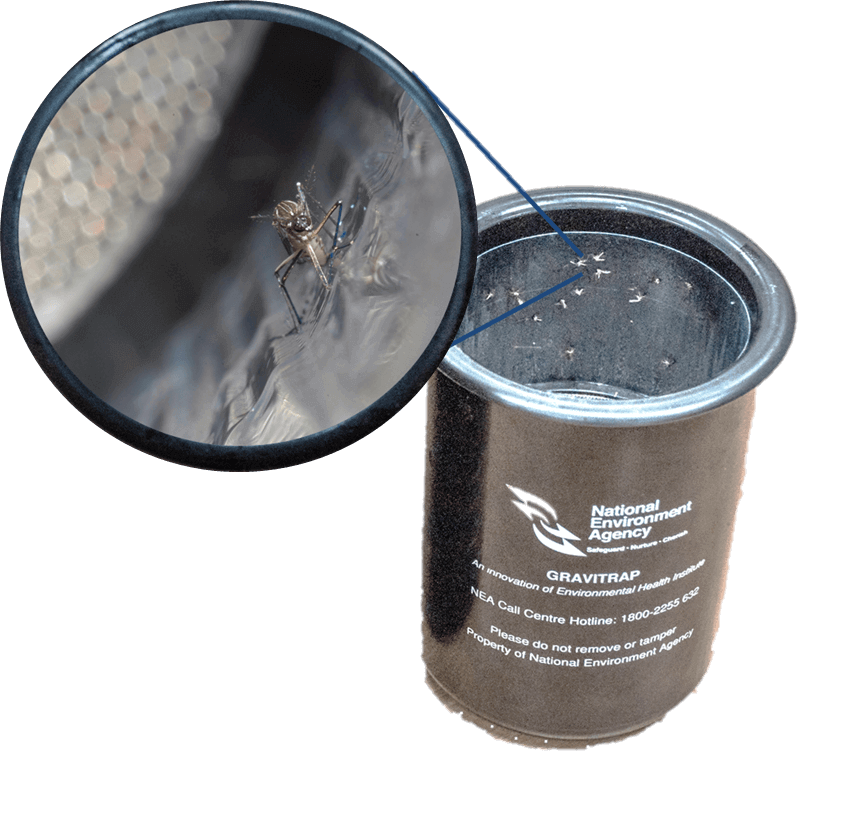EHI’s Vector-Borne Diseases Research Programme conducts field and laboratory research to gain a better understanding of vector-borne diseases that pose a threat to Singapore, and to develop tools for risk interventions.
Vector control and surveillance tools
The programme continually explores new and safe tools for Singapore’s vector control programme. It is currently studying the feasibility of using Wolbachia-carrying Aedes aegypti males to help suppress the Aedes mosquito population in Singapore, to further reduce the risk of dengue transmission. Wolbachia are naturally-occurring bacteria present in more than 60 per cent of insects. However, Aedes aegypti, the primary dengue-transmitting vector, does not carry the bacteria. When female mosquitoes from the field – which do not carry Wolbachia – mate with males that carry Wolbachia, the eggs derived from these matings do not hatch. Theoretically, releasing males carrying Wolbachia could lead to a reduction in the population of Aedes mosquitoes in the field.
Please click here for more information on Wolbachia technology.

Previously, the team developed the Gravitrapthat enabled the capture of both Aedes female adult mosquitoes and their eggs. Gravitraps are currently deployed at public housing estates in various parts of Singapore, to provide an overview of the mosquito density in different parts of Singapore.

The team also carries out tests on the efficacy of insecticides and the resistance of mosquitoes to them. Such tests are conducted in both the laboratory and field, to ensure that the insecticides used continue to be effective in mosquito control.
The institute also serves as a repository and reference for mosquito species present in Singapore. Through years of collection from various habitats, we have accumulated a comprehensive collection of mosquitoes that is carefully catalogued and filed for easy reference.
